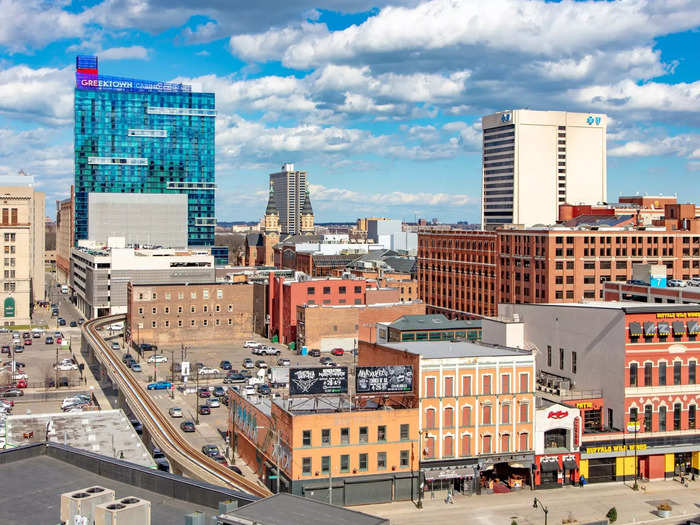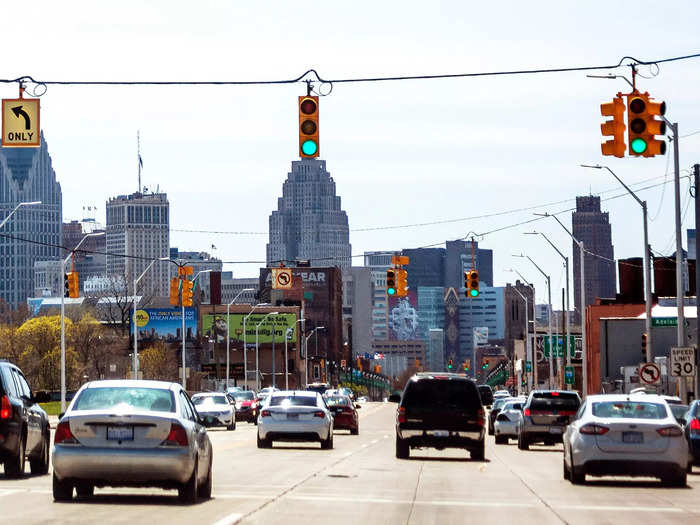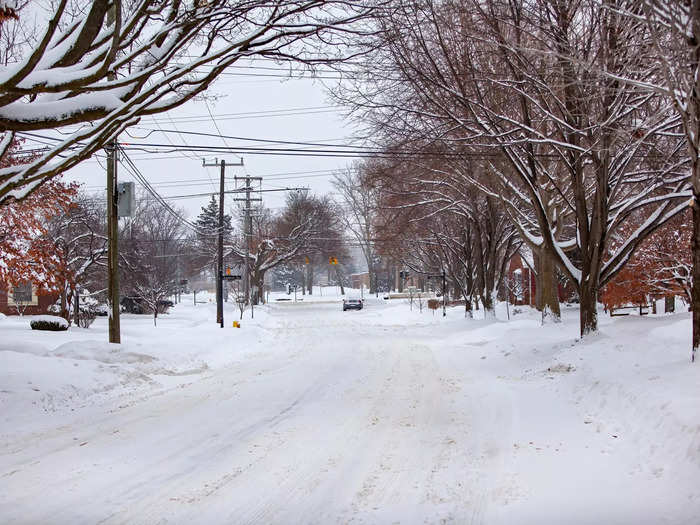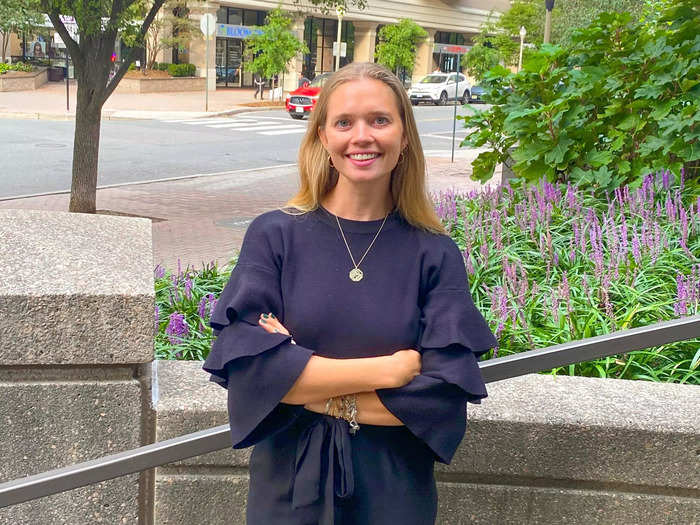I moved to the Midwest to pursue a college education.Alex Potemkin/Getty Images
- I moved from Brazil to the Midwest when I was 19 and experienced a few significant culture shocks.
- I initially thought Lake Orion, Michigan, would match the images of American cities I'd seen on TV.
When I moved from Brazil to Michigan at 19, it was my first time in the US — and, despite having parents from the Midwest, I didn't know much about the country.
By the time I was born, my parents, who had relocated to Brazil as full-time volunteer missionaries in their early 20s, had lived in South America for almost 10 years. Having no intention of returning, they avoided reminiscing about their pre-missionary lives or glamorizing their homeland.
As a teenager, I opted out of the missionary life my parents hoped I would dedicate myself to and decided to pursue a college education in the US. I planned to live with a close friend who had moved to Michigan, and though I knew it would be an adjustment, I felt ready for something new.
So, in 2009, I packed my bags and left my urban home in Curitiba, the capital of Brazil's Paraná state, and relocated to the Detroit-area suburbs.
Here are a few of the biggest culture shocks I experienced when I moved.
I was surprised that the neighborhoods near big cities weren't all dense and urban.
I expected my new home to resemble Detroit's urban layout. Photo by Mike Kline (notkalvin)/Getty Images
When my friend said he lived "just outside Detroit," I assumed his town — Lake Orion — would resemble the neighborhoods of a dense city.
But when I arrived, I learned the township about 40 miles outside Detroit was filled with woodland and expansive, open backyards. This vastly differed from the high walls and gates that surrounded almost every home in Brazil where I grew up.
I expected my Michigan neighborhood to be like those in the movies and TV shows about New York City, complete with sky-high apartments, bustling subway stations, and bars and restaurants on every corner. Needless to say, adjusting to the quieter township was a challenge I wasn't expecting.
I hadn't realized owning a car in Michigan would be so common.
Owning a car and driving was more common than I thought it would be. peeterv/Getty Images/iStockphoto
In Curitiba, my parents, who had been granted Brazilian driver's licenses when they moved, both drove. We usually had a working vehicle (always purchased used), but gas was expensive, and we have a big family.
So, like the many Brazilians who utilized Curitiba's bus system in the early 2000s, we often relied on public transportation or walked to get where we needed to go.
But, in Michigan, driving seemed to be a requirement for everything. When I got a job at a nearby mall, I didn't think walking the mile and a half from my new home would be an issue. However, my coworkers thought my idea was absurd — and they stared at me in astonishment when I asked about a public bus.
Learning to drive in the US was a pleasant experience, though. My friend's dad taught me free of charge, and I even bought my 1997 Toyota Corolla during my first year in the US.
Winter in the US wasn't as bad as I expected, but I wasn't used to indoor heating.
I felt colder during the winter when I lived in Brazil than in the US. Ali Majdfar/Getty Images
When I moved to the Midwest, I knew the winters would be colder than those I was used to. In fact, I saw snow for the first time while living in Michigan.
But, between heated houses and cars, my first taste of a real winter was surprisingly warm.
In Brazil, I lived in a home with little insulation and no indoor heating. Unlike my heated home in Michigan, the only sources of warmth were fireplaces, blankets, clothing, and occasional space heaters.
I was also shocked to learn that many people in the US wear thick coats for the short walk from the car to the store when it's cold out then immediately remove them after stepping inside. In Brazil, most people I knew wore the same clothes outdoors and inside.
Overall, I had lots of great experiences when I moved to the US — so I decided to stay.
Today, I live in the Washington, DC, area and feel right at home. Kristi Ferguson
Throughout my first two years in the US, I learned from supportive professors and mentors, made lifelong friends, and met the person who would eventually become my husband.
I still fondly remember Michiganders looking out for me, whether it was coworkers answering my questions or older women calling me "hun." Though more reserved than the Brazilians I remember, people were actively kind, often going out of their way to be helpful.
As I settled into my life in Michigan, I eventually altered my perspective of the US as a temporary home.
Today, I live near the Washington, DC, metro line and walk alongside 20-story apartment buildings with other pedestrians — a scene that makes me feel at home. Still, I'm glad I first landed in the Midwest.




